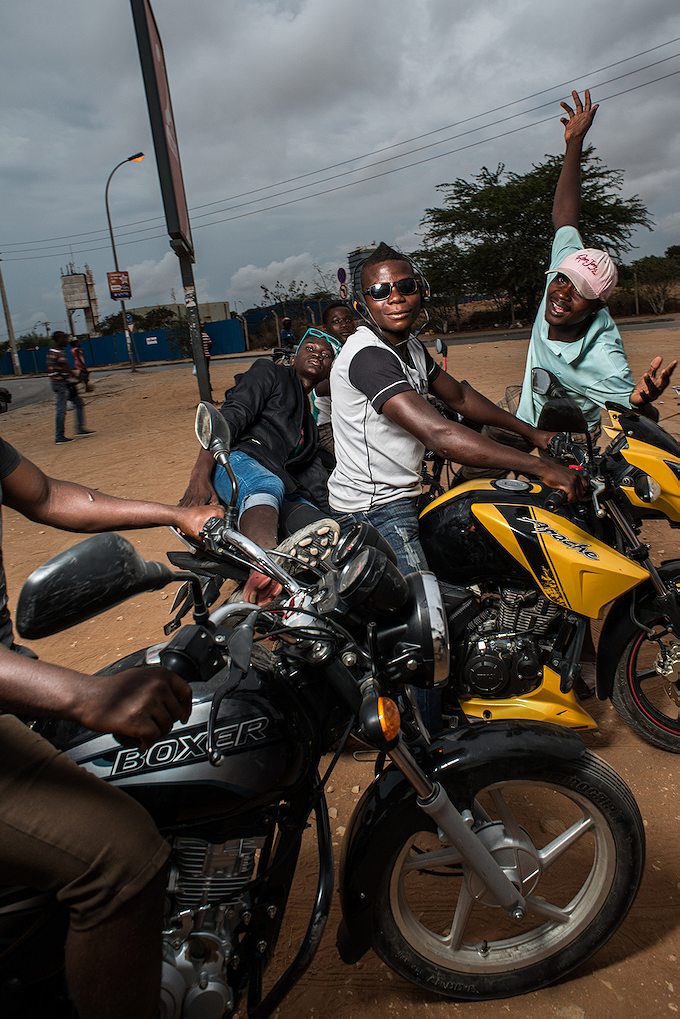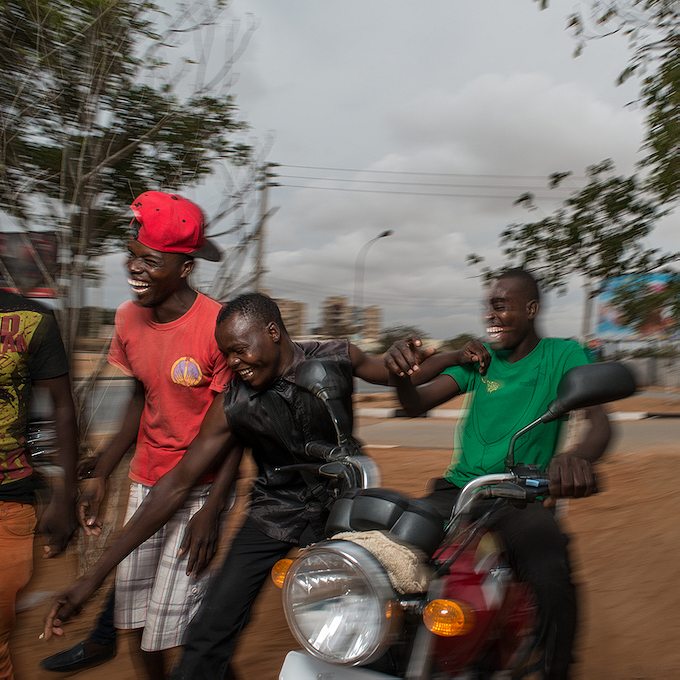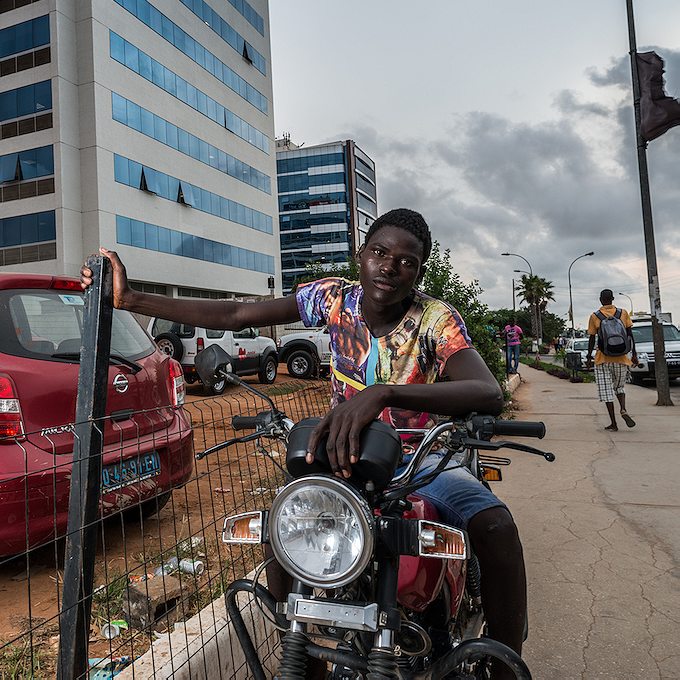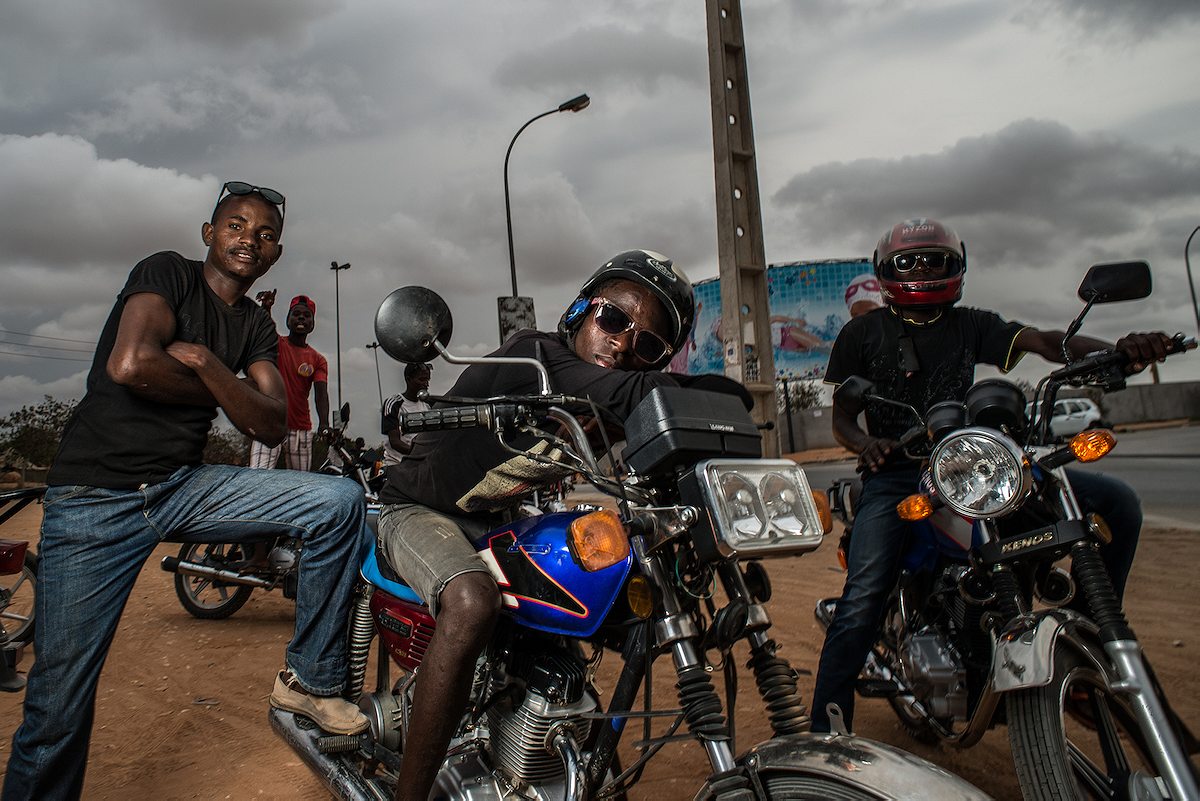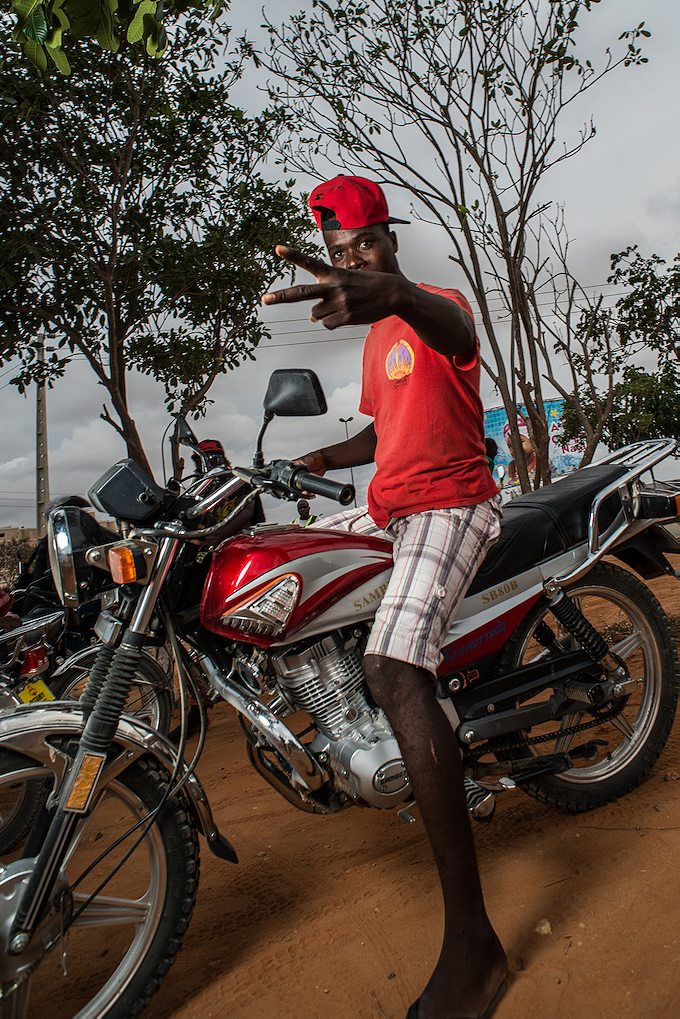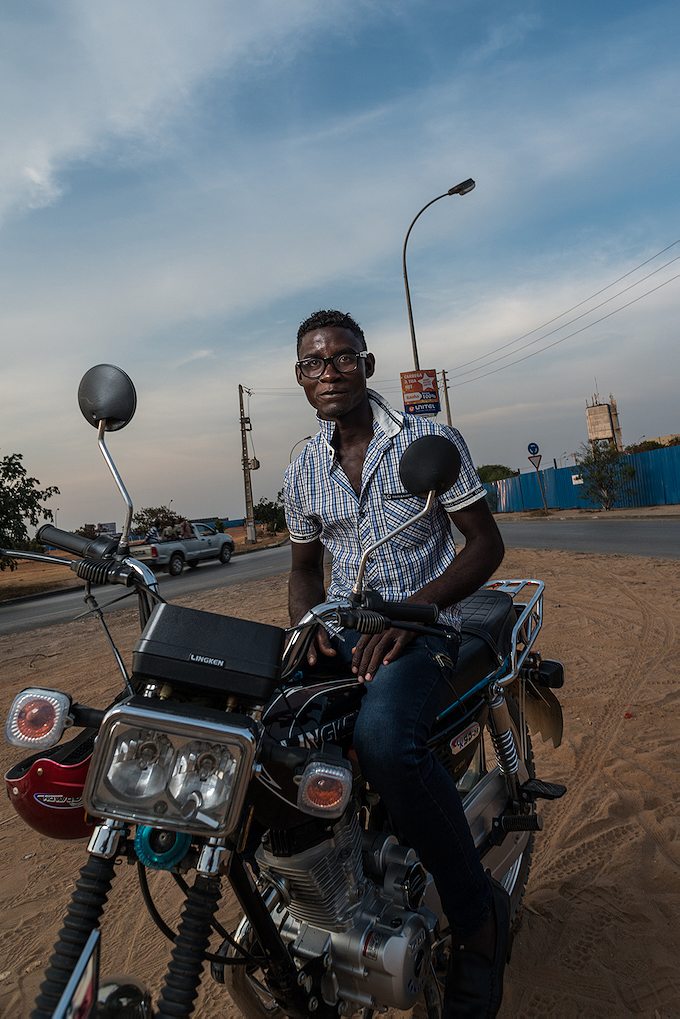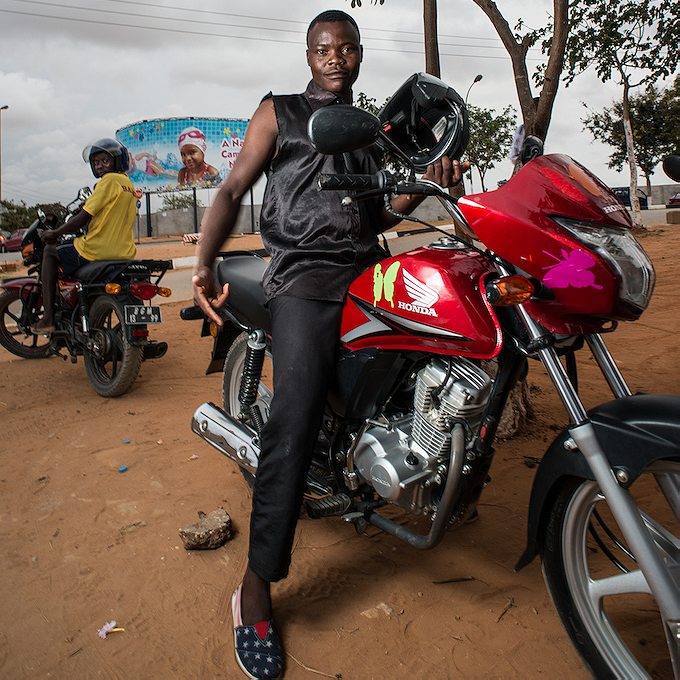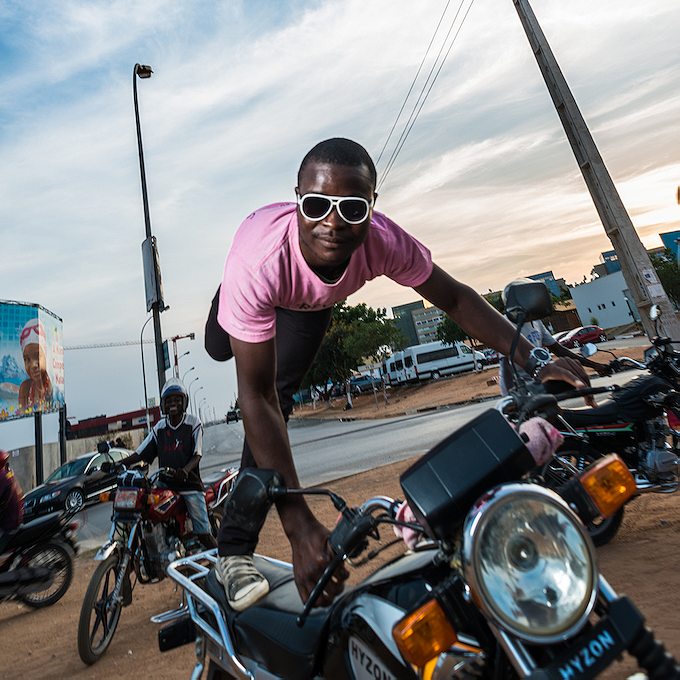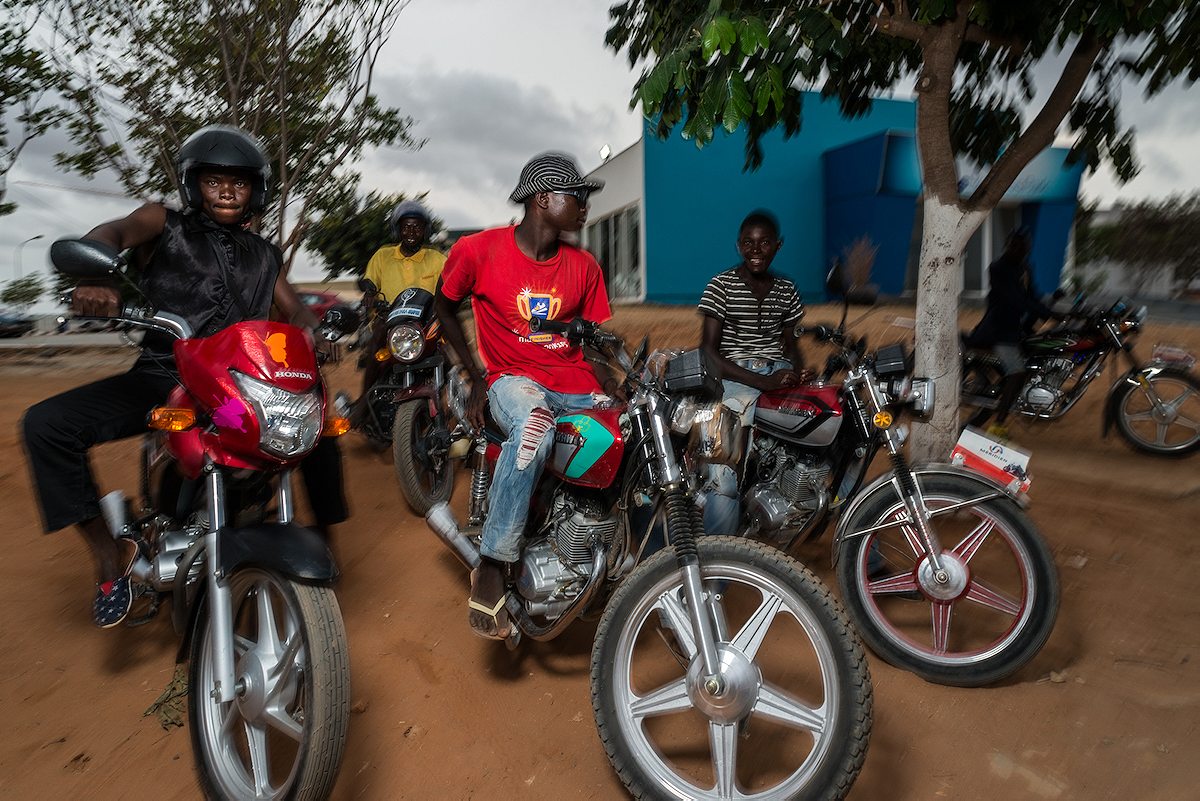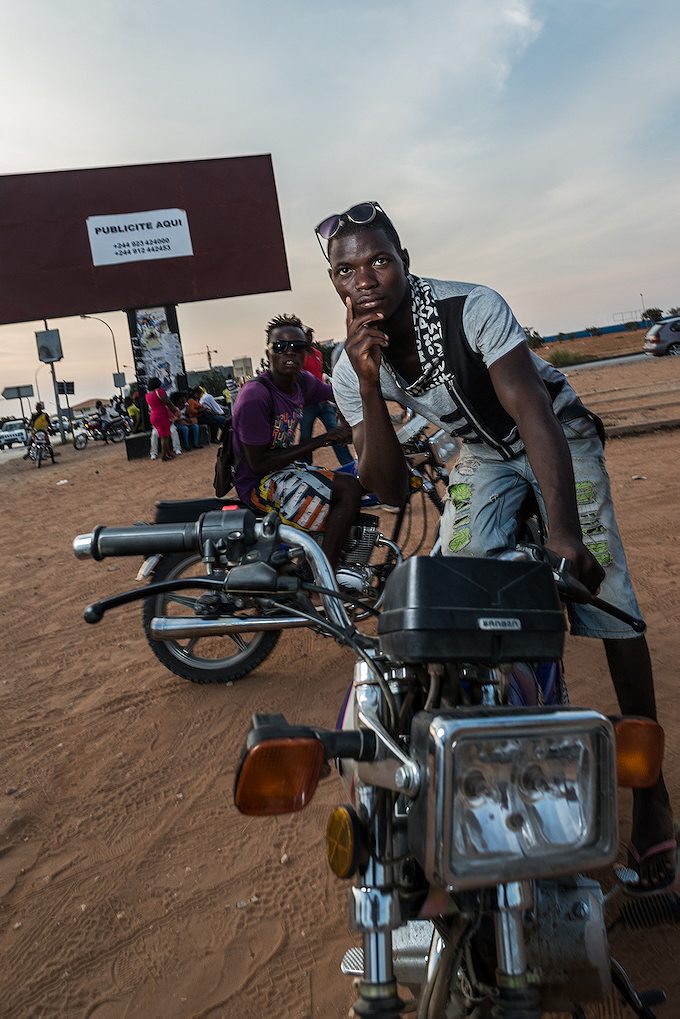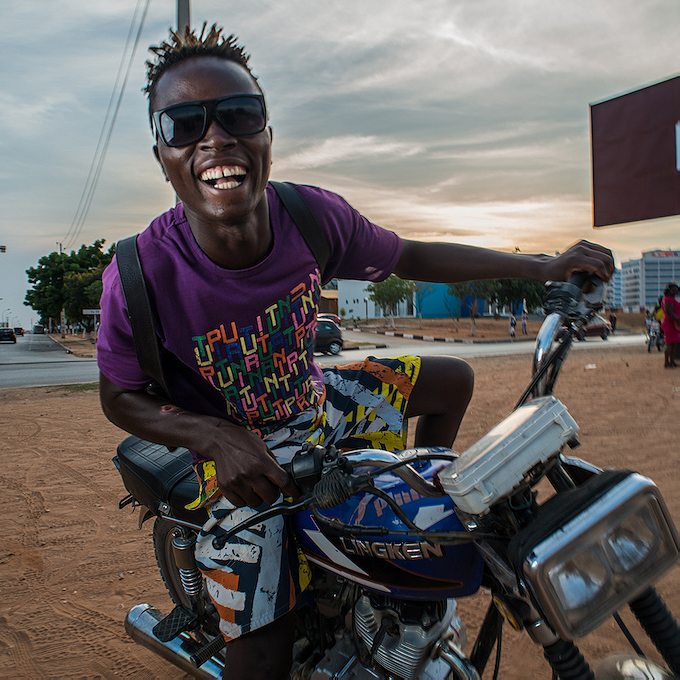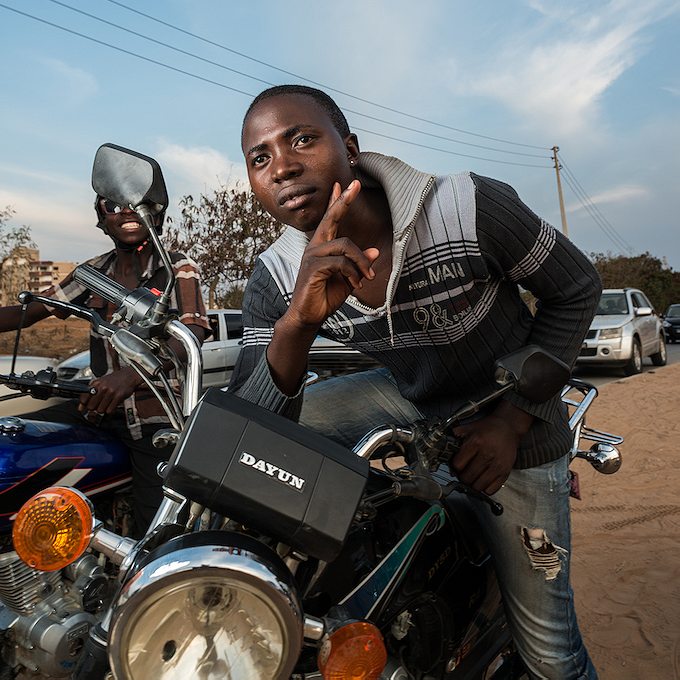Michael Magers photographs Angola, a country that is trying to rebound with style.
This is the Luanda I saw: Porsches and favelas, beauty and decay, pockets of immense change and total stagnation. Out of the ruins of more than forty years of conflict—a war of liberation followed by a brutal civil war (one with some of the fiercest ground combat since Rommel’s defeat in WWII) —the country is at peace and is surging. You may have read that the oil money vanishes into the hands of the elite. That Luanda is consistently ranked one of the most expensive cities in the world for expats. But it’s harder to grasp, without being here, just how electric the place feels, across all levels of society. The country is not just trying to rebound; it is trying to rebound with style.
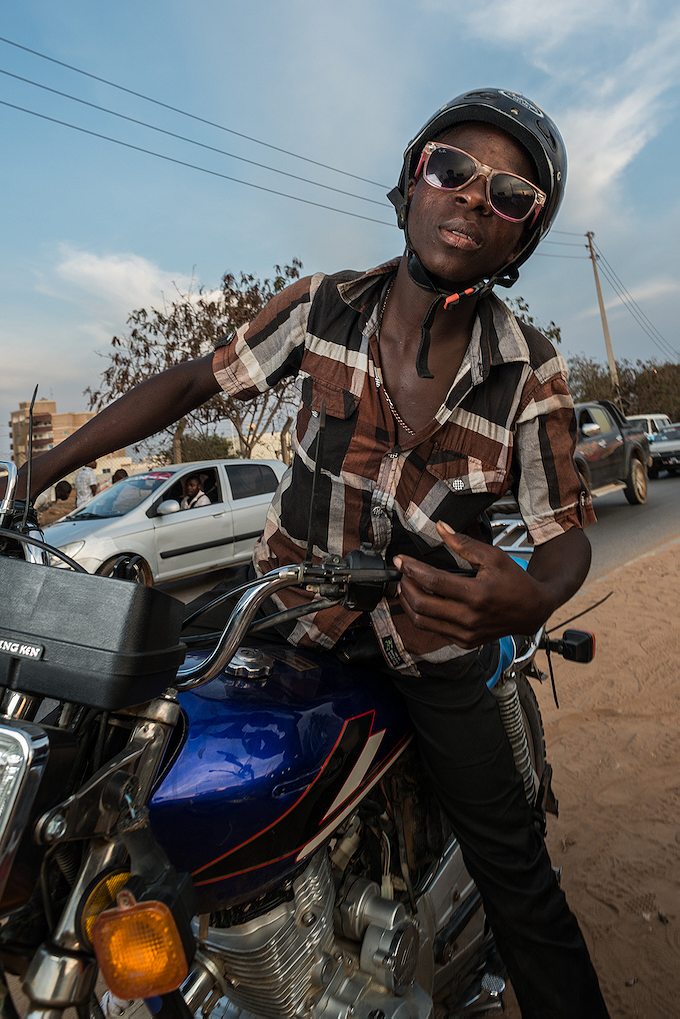
Nobody embodies that quite as much as the young men—many still in their teens—who drive Luanda’s motorcycle taxis. It’s a dangerous job. Angola’s traffic is notoriously treacherous: on my trip to the south of the country, roadsides looked like the Autobot graveyard, with burnt wrecks everywhere. In Luanda, the swirl of moto-taxis defies the risks in order to bring cheap transportation to a city reliant on a mostly informal network of gypsy cabs and micro-buses. And they do it because, as one of the drivers told me, there are simply no better jobs to be had. To be in your late teens or early 20s in Angola means you were too young to have fought in the civil war, but likely too old to have benefited directly from many of the investments the country has made in the past 10 years to develop basic infrastructure, healthcare, education, and a services industry – the general building blocks of a middle class.
That’s why I was so drawn to the sheer élan of these riders. Natty blazers, Kanye shades, crisp-brimmed lids, bikes kept pristine despite the dusty streets: don’t let the headlines fool you. Angolans, particularly the new generations, are aspirational and optimistic. It is better to be young, Angolan, and trying to make it in Luanda today than ever before. —Michael Magers
